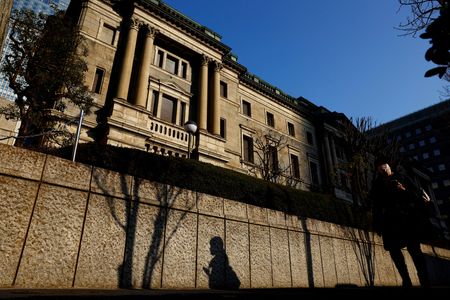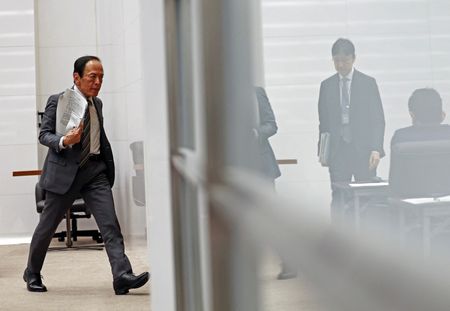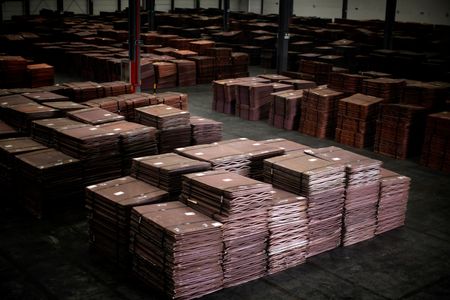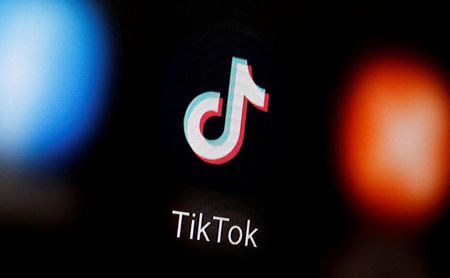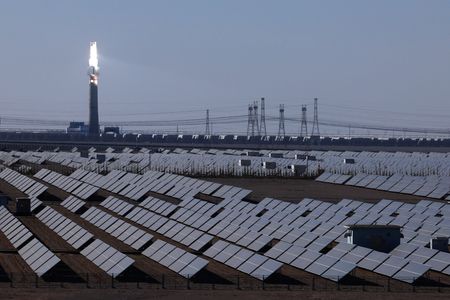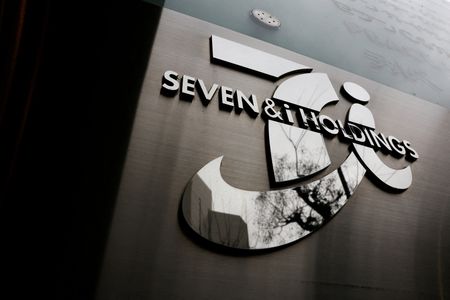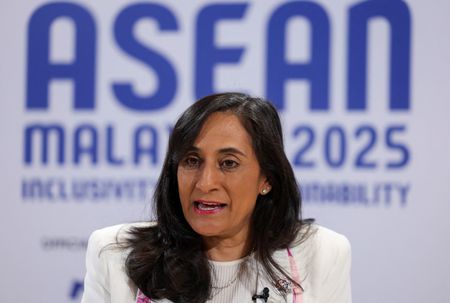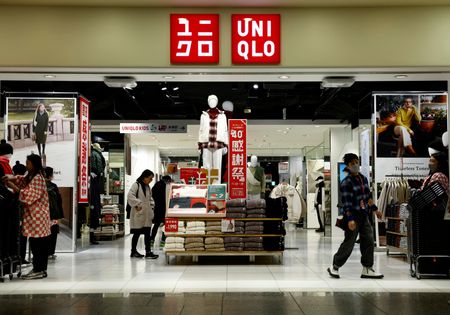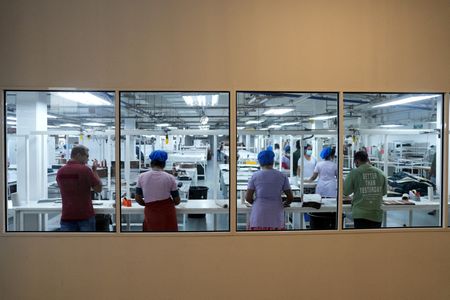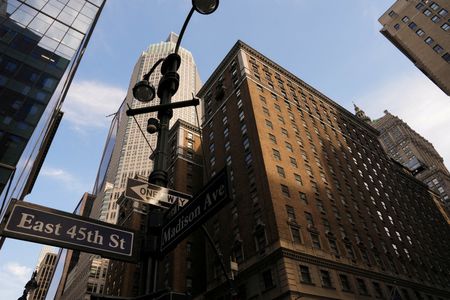By Leika Kihara
TOKYO (Reuters) -Japanese companies are taking U.S. tariffs in their stride for now, but worry about a potential hit from weakening global demand, the central bank said on Thursday, signalling a prolonged pause in interest rate hikes.
While some firms were delaying plans for capital expenditure, higher U.S. levies have yet to materially hurt exports and factory output, a summary of findings from a quarterly meeting of the BOJ’s regional branch managers showed.
“Many regions saw companies voice concern about slumping demand from rising U.S. sales prices and a slowdown in the global economy,” the bank said.
The findings, from surveys by regional branch managers, show companies unable to grasp the full potential impact of higher U.S. tariffs, due to the swift changes U.S. President Donald Trump is prone to make in trade policy.
They do not reflect Trump’s announcement on Monday for a raise in tariffs on Japanese goods to 25% from 10% unless a trade deal is struck by August 1, a BOJ official told reporters.
The summary will be among factors the BOJ will scrutinise at its next policy meeting on July 30 and 31, when the board will issue fresh quarterly growth and price forecasts.
Amid the gloom spread by the tariffs, former BOJ board member Makoto Sakurai expects the central bank to cut its growth forecasts again this month.
“The BOJ probably wants to raise rates further. But given the difficult economic environment, the earliest the BOJ could resume rate hikes will be March,” he told Reuters on Wednesday.
After raising its policy interest rate to 0.5% in January, the BOJ cut growth forecasts in May and signalled a pause in rate hikes after Trump threatened higher tariffs.
A glimmer of hope is offered by a steady inflow of tourists and a tight labour market that underpin consumption, the BOJ’s Osaka branch manager, Kazuhiro Masaki, told reporters.
But some regions were already showing signs of strain from the tariff of 25% on Japanese automobiles, a mainstay of the export-reliant economy.
Kenji Sakuta, the manager of the BOJ’s Fukuoka branch, said some automakers were shifting production to the United States and cutting export prices to swallow the cost of tariffs.
“Companies are vaguely worried about the impact of U.S. tariffs, but not sure about the extent to which they could hurt profits,” Sakuta told a press conference.
“There’s also vague hope among some firms that Japan can avert huge U.S. tariffs, which could prove elusive.”
Companies had a mixed outlook on wages, key to the timing of the next rate hike, with some hinting at cutting bonuses if the tariffs hurt profit, while others saw a need to hike wages to retain talent, the summary showed.
Japan’s economy shrank in the first quarter as rising living costs hurt consumption. Exports fell in May for the first time in eight months, stoking recession fears.
A slight majority in a June Reuters poll of economists saw the bank forgoing another rate hike this year.
(Reporting by Leika Kihara; Editing by Christopher Cushing and Clarence Fernandez)

